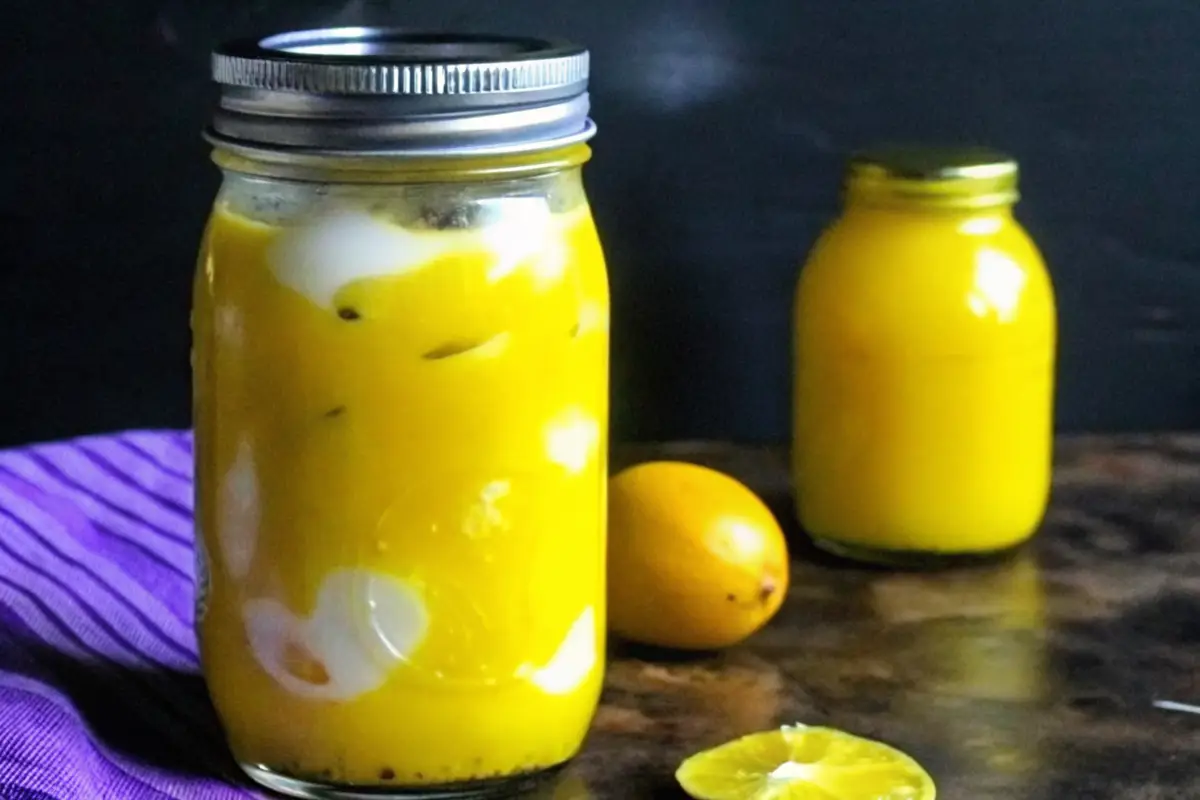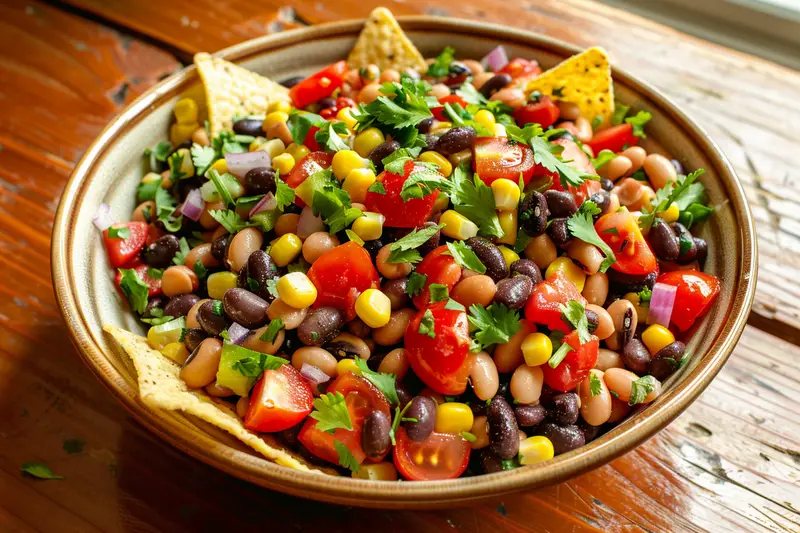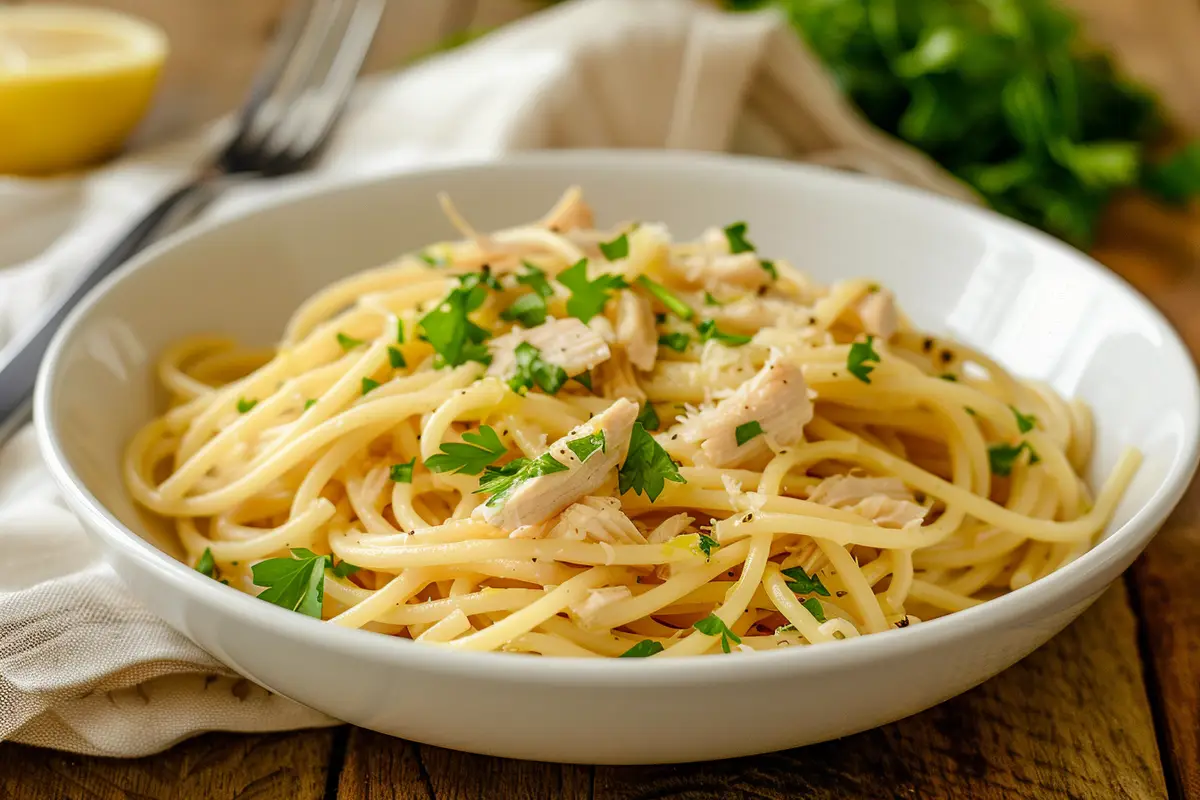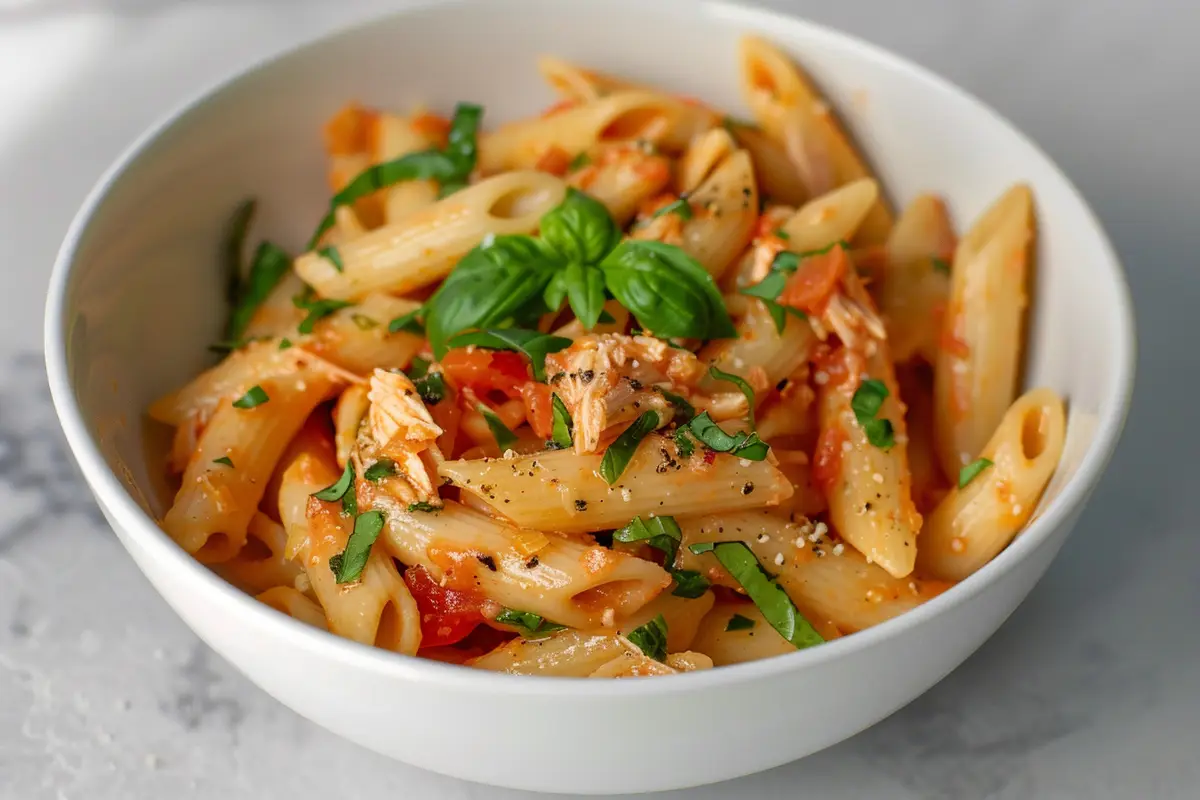Mustard pickled eggs are a delicious twist on the classic pickled egg, combining the tangy sharpness of vinegar with the bold, slightly spicy kick of mustard. This flavorful snack is perfect for anyone looking for a protein-packed treat, a unique appetizer, or a tasty addition to salads and sandwiches.
In this guide, we’ll cover everything you need to know about mustard pickled eggs—from how to make them and how long they last to their health benefits and the best ways to enjoy them. Let’s dive in!
What Are Mustard Pickled Eggs?
A Unique Twist on a Classic Pickled Egg
Pickled eggs have long been a staple in bars, pubs, and home kitchens. They are made by soaking hard-boiled eggs in a brine of vinegar, salt, and spices. This process not only preserves the eggs but also enhances their flavor over time.
Mustard pickled eggs take this concept a step further by incorporating mustard into the brine. The result? A slightly spicy, tangy, and deeply flavorful egg that pairs well with a variety of dishes.
The Role of Mustard in Pickling
Mustard does more than just add flavor—it also enhances the pickling process. Here’s how:
- Acidity Balance – Mustard helps mellow out the sharpness of vinegar, creating a smoother taste.
- Flavor Depth – Its slight heat and tanginess add complexity to the brine.
- Antibacterial Properties – Mustard contains natural compounds that help preserve the eggs for longer periods.
This unique combination of flavors makes mustard pickled eggs a must-try for any pickled food lover.
Ingredients Needed for Mustard Pickled Eggs
Making mustard pickled eggs at home is simple, but choosing the right ingredients is key to getting the perfect balance of tangy, savory, and slightly spicy flavors. Here’s what you’ll need to create a delicious batch.
Essential Ingredients for the Brine
A good brine is the foundation of great mustard pickled eggs. Here’s what you’ll need:
- 12 hard-boiled eggs – Peeled and ready for pickling.
- 2 cups white vinegar – The primary pickling agent that gives the eggs their signature tang.
- 1 cup water – Helps dilute the vinegar for a balanced flavor.
- 1 tablespoon yellow or Dijon mustard – Adds depth and a slight spiciness to the brine.
- 1 teaspoon mustard seeds – Enhances the mustard flavor and gives the brine a more complex taste.
- 1 teaspoon salt – Essential for seasoning and preserving the eggs.
- 1 tablespoon sugar (optional) – Balances the acidity and adds a slight sweetness.
- ½ teaspoon turmeric – Provides a warm, slightly earthy flavor and gives the eggs a golden hue.
- 1 teaspoon black peppercorns – Adds a mild peppery kick.
- 1 bay leaf – Infuses the brine with subtle herbal notes.
Choosing the Right Mustard for the Recipe
The type of mustard you use will influence the final flavor of your mustard pickled eggs:
- Yellow Mustard – Classic, mild, and slightly tangy.
- Dijon Mustard – Stronger and sharper with a bit of heat.
- Whole Grain Mustard – Adds texture and a more rustic, hearty flavor.
- Spicy Brown Mustard – Gives the brine an extra kick with deeper spice notes.
Choosing the right mustard depends on your taste preferences—if you like a more traditional pickled egg, go with yellow mustard. If you prefer a stronger, more complex taste, try Dijon or whole grain mustard. For those who love bold flavors, mustard pickled eggs pair well with redneck caviar for a tangy, refreshing side.
How to Make Mustard Pickled Eggs at Home
Now that you have all the ingredients ready, it’s time to make mustard pickled eggs. The process is simple, but allowing enough time for the eggs to pickle properly will give you the best flavor. Follow this step-by-step guide to create the perfect batch.
Step-by-Step Recipe for Perfect Pickled Eggs
Step 1: Hard-Boil and Peel the Eggs
- Place the eggs in a saucepan and cover them with water.
- Bring the water to a boil, then reduce the heat and let the eggs simmer for about 10 minutes.
- Transfer the eggs to an ice bath and let them sit for 5 minutes. This makes peeling easier.
- Once cooled, peel the eggs carefully and set them aside.
Step 2: Prepare the Mustard Pickling Brine
- In a medium saucepan, combine:
- 2 cups white vinegar
- 1 cup water
- 1 tablespoon mustard (yellow or Dijon)
- 1 teaspoon mustard seeds
- 1 teaspoon salt
- 1 tablespoon sugar (optional)
- ½ teaspoon turmeric
- 1 teaspoon black peppercorns
- 1 bay leaf
- Bring the mixture to a light boil over medium heat, stirring occasionally to dissolve the salt and sugar.
- Once the brine is heated and well mixed, remove it from the heat and let it cool slightly.
Step 3: Pack the Eggs into a Jar
- Place the peeled eggs into a clean, large glass jar. Make sure the jar is big enough to hold all the eggs and the brine.
- If you like a stronger mustard flavor, you can add a few extra mustard seeds or a teaspoon of prepared mustard directly into the jar.
Step 4: Pour the Brine Over the Eggs
- Slowly pour the warm brine over the eggs, ensuring they are fully submerged.
- If needed, gently press the eggs down with a spoon or add a small weight (like a clean glass or ceramic weight) to keep them immersed in the liquid.
Step 5: Seal and Store the Jar
- Close the jar tightly with a lid and give it a gentle shake to distribute the flavors.
- Let the jar cool to room temperature before placing it in the refrigerator.
Step 6: Let the Eggs Pickle
- For the best flavor, let the eggs pickle for at least 3-5 days before eating.
- If you prefer a stronger, more developed taste, let them sit for 1-2 weeks.
- The longer they pickle, the more intense the mustard and vinegar flavors will become.
Tips for Achieving the Best Flavor
- Use fresh eggs for easier peeling and better texture.
- Shake the jar occasionally to help distribute the mustard and spices evenly.
- Avoid using metal lids, as vinegar can react with metal. Opt for plastic or coated lids instead.
- Experiment with additional spices like garlic, red pepper flakes, or dill for a customized flavor.
How Long Do Mustard Pickled Eggs Last?
Once you’ve made a batch of mustard pickled eggs, proper storage is crucial to ensure they stay fresh and flavorful. Since pickling acts as a natural preservative, these eggs can last a long time—but there are still important guidelines to follow for safety and taste.
Proper Storage for Maximum Freshness
To keep mustard pickled eggs at their best quality, follow these storage tips:
- Refrigerate immediately – Always store pickled eggs in the refrigerator at or below 40°F (4°C).
- Use a sealed glass jar – Airtight glass jars are best for preserving the flavor and preventing contamination.
- Keep the eggs submerged – Make sure all eggs are fully covered with brine to prevent spoilage.
- Let them sit before eating – For the best taste, allow at least 3-5 days before consuming.
How Long Do Mustard Pickled Eggs Last?
When stored properly in the refrigerator:
| Storage Condition | Shelf Life |
|---|---|
| Sealed in brine, unopened | 2-3 months |
| Opened jar, refrigerated | Up to 1 month |
| Eggs not fully submerged | 1-2 weeks |
Unlike some store-bought pickled foods, homemade mustard pickled eggs are not shelf-stable and must be kept in the fridge at all times.
For a mustard-rich meal, pair your pickled eggs with this cheese dip for pretzels for a bold, tangy flavor combination.
Signs Your Pickled Eggs Have Gone Bad
Even though vinegar and mustard help preserve eggs, they can still spoil over time. Watch for these warning signs:
- Cloudy or slimy brine – The liquid should remain clear. If it turns cloudy or develops a slimy texture, the eggs may be spoiled.
- Off-putting smell – A strong, unpleasant odor is a clear sign the eggs have gone bad.
- Mold or unusual growth – Any visible mold or floating particles in the jar mean the eggs should be discarded immediately.
- Strange taste or texture – If the eggs taste off or feel mushy instead of firm, it’s best not to eat them.
Can You Freeze Mustard Pickled Eggs?
No, freezing is not recommended for mustard pickled eggs. The freezing process changes the texture of the egg whites, making them rubbery and unappetizing. It’s best to store them in the refrigerator and consume them within the recommended time frame.

Health Benefits of Mustard Pickled Eggs
Mustard pickled eggs aren’t just delicious—they’re also packed with nutrients that make them a great addition to a balanced diet. From being high in protein to offering essential vitamins and minerals, these pickled eggs can be a healthy snack or side dish. Let’s break down their nutritional value and see how they compare to other condiments.
Nutritional Value of Pickled Eggs
A single mustard pickled egg (large egg, pickled) contains approximately:
| Nutrient | Amount | Benefit |
|---|---|---|
| Calories | 70-80 | Provides energy without excess calories |
| Protein | 6g | Supports muscle growth and repair |
| Healthy Fats | 5g | Contains beneficial fats for brain health |
| Vitamin B12 | 0.6µg | Essential for red blood cell formation |
| Selenium | 15µg | Boosts immune function and metabolism |
| Choline | 147mg | Supports brain health and liver function |
Since mustard pickled eggs are naturally low in carbs and sugar, they fit well into various diets, including low-carb, keto, and high-protein diets.
Is Mustard a Healthier Condiment Choice?
Many people wonder whether mustard is a better choice than other condiments like mayonnaise or ketchup. Let’s compare:
| Condiment | Calories (per tbsp) | Fat | Sugar | Benefits |
|---|---|---|---|---|
| Yellow Mustard | 5-10 | 0g | 0g | Low-calorie, rich in antioxidants |
| Dijon Mustard | 10-15 | 0g | 0g | Stronger flavor, good for metabolism |
| Mayonnaise | 90-100 | 10g | 0g | High in fats, but calorie-dense |
| Ketchup | 20 | 0g | 4g | High in sugar, less nutritious |
As you can see, mustard is one of the healthiest condiments. It’s low in calories, contains no sugar, and adds flavor without excess fat. When combined with pickled eggs, it creates a nutritious and satisfying snack.
Are Mustard Pickled Eggs Good for You?
Yes! Here’s why they’re a great addition to your diet:
✔ High in protein – Keeps you full and supports muscle growth.
✔ Rich in healthy fats – Supports brain and heart health.
✔ Packed with vitamins and minerals – Contains essential nutrients like B12 and selenium.
✔ Low in carbs – Perfect for keto and low-carb diets.
✔ No added sugars – Unlike some other pickled foods, mustard pickled eggs are naturally sugar-free.
Bonus Tip: Adding turmeric to the pickling brine enhances the health benefits by providing anti-inflammatory properties and a natural antioxidant boost.
Why Put Mustard in Pickled Eggs?
If you’ve ever had traditional pickled eggs, you might be wondering—why add mustard? While vinegar and salt do the heavy lifting in the pickling process, mustard enhances the eggs in multiple ways. Let’s explore how mustard influences the flavor, texture, and overall pickling process.
The Flavor Profile of Mustard in Pickling
Adding mustard to pickled eggs creates a complex, well-balanced flavor that goes beyond traditional vinegar-brined eggs. Here’s how mustard transforms the taste:
- Adds tangy sharpness – Mustard’s natural acidity complements the vinegar, creating a smooth yet zesty taste.
- Introduces mild heat – Certain types of mustard, like Dijon or spicy brown, give the eggs a subtle spicy kick.
- Enhances umami depth – The combination of mustard, salt, and spices brings out the rich, savory flavors in the eggs.
If you find regular pickled eggs too sour, mustard helps round out the acidity and creates a more balanced, flavorful bite.
How Mustard Affects the Texture of Pickled Eggs
Mustard doesn’t just impact the taste—it also plays a role in the texture of pickled eggs:
- Smoother Egg Whites – The vinegar in the brine can make egg whites slightly firmer, but mustard helps soften them for a more tender texture.
- Evenly Coated Yolk – The mustard-infused brine penetrates the egg yolk better, preventing it from drying out and giving it a creamy, rich consistency.
- Better Absorption of Flavors – The fine particles in mustard help distribute spices evenly throughout the brine, ensuring the eggs absorb maximum flavor.
The Science Behind Mustard in Pickling
Mustard contains natural antimicrobial properties, which means it helps keep bacteria at bay—further extending the shelf life of your pickled eggs. Plus, mustard stabilizes the brine, preventing ingredients from separating and ensuring a well-blended, flavorful mix.
Creative Ways to Use Mustard Pickled Eggs
Now that you’ve mastered the art of making mustard pickled eggs, it’s time to get creative! These tangy, protein-packed eggs are incredibly versatile and can be used in various dishes, from simple snacks to gourmet meals.
Serving Ideas for Snacks and Meals
Not sure how to enjoy mustard pickled eggs? Here are some delicious ways to serve them:
As a Classic Snack – Enjoy them straight from the jar for a quick, satisfying bite.
Deviled Eggs with a Twist – Mash the yolks with a little mayo, extra mustard, and paprika for a tangy take on classic deviled eggs.
Egg Salad Upgrade – Dice mustard pickled eggs and mix them with mayo, celery, and black pepper for a flavorful twist on egg salad.
Sliced on Toast – Layer slices on whole-grain toast with avocado for a protein-packed breakfast.
Added to Charcuterie Boards – Serve alongside meats, cheeses, and pickles for a unique appetizer spread.
Chopped in Potato Salad – Replace regular hard-boiled eggs with pickled ones to add a zesty kick to your favorite potato salad recipe.
Pairing Mustard Pickled Eggs with Other Foods
Mustard pickled eggs have a bold flavor that pairs well with a variety of ingredients:
| Food Pairing | Why It Works |
|---|---|
| Smoked Meats (ham, bacon, pastrami) | The smoky flavors complement the tangy, mustard-infused eggs. |
| Soft Cheeses (brie, goat cheese, feta) | Creamy cheeses balance the sharpness of the mustard and vinegar. |
| Dark Rye or Sourdough Bread | The rich, slightly sour taste of the bread enhances the pickled egg flavor. |
| Fermented Vegetables (sauerkraut, kimchi, pickles) | A great combo for probiotic-rich, gut-healthy meals. |
| Spicy Sauces (hot sauce, horseradish, wasabi mayo) | Adds an extra layer of heat to the mustard spice. |
Looking for another tangy delight? Try this potato salad with dill for a perfect side dish.
Unexpected Ways to Use Mustard Pickled Eggs
Looking for something out of the ordinary? Try these unique ways to enjoy your pickled eggs:
- Egg and Avocado Sushi Rolls – Dice pickled eggs and roll them into sushi with avocado and cucumber.
- Burger Topping – Slice and layer them on burgers for a tangy twist.
- Chopped in Ramen or Pho – Adds a burst of acidity to balance rich broths.
- Taco Garnish – Chop them up and sprinkle over fish or pork tacos for a surprising flavor boost.
- Brunch Bloody Mary Garnish – Skewer a mustard pickled egg on a cocktail stick for the ultimate Bloody Mary topper.

Common Mistakes to Avoid When Making Mustard Pickled Eggs
Making mustard pickled eggs is a simple process, but a few common mistakes can affect their flavor, texture, and shelf life. Avoid these pitfalls to ensure your eggs turn out perfect every time.
1. Overpowering the Brine with Too Much Mustard
While mustard adds great flavor, using too much can make the brine overly thick, grainy, or bitter. Stick to about 1 tablespoon of prepared mustard per batch and adjust to taste. If using mustard powder or mustard seeds, balance them with other spices to prevent bitterness.
2. Not Letting the Eggs Pickle Long Enough
Pickled eggs need at least 3-5 days in the refrigerator to develop their full flavor. If you eat them too soon, they may taste bland or overly vinegary. For the best taste, wait at least a week before digging in.
3. Using the Wrong Type of Vinegar
The type of vinegar you use greatly impacts the final flavor.
- Best Choices: White vinegar (strong and tangy), apple cider vinegar (mild and slightly sweet), or malt vinegar (deep, complex flavor).
- Avoid: Balsamic vinegar (too sweet and thick) and flavored vinegars (may overpower the mustard).
4. Not Keeping the Eggs Fully Submerged
If the eggs aren’t fully covered in brine, they can dry out or develop an uneven flavor. Always make sure they’re completely submerged. If needed, place a small weight (like a clean glass or a piece of onion) on top to keep them down.
5. Using a Metal Lid on the Jar
Vinegar can corrode metal lids, which may cause the brine to take on a metallic taste. Always use glass jars with plastic or coated lids to avoid this issue.
6. Storing at Room Temperature
Homemade mustard pickled eggs must be refrigerated. Unlike store-bought pickled products, homemade versions don’t have preservatives, so they should never be left at room temperature for extended periods.
7. Not Sterilizing Your Jar
A dirty jar can introduce bacteria, leading to spoilage. Always sterilize your jars by washing them with hot, soapy water and rinsing them well before use. For extra precaution, you can also pour boiling water over the jar before adding the eggs.
8. Discarding the Brine Too Soon
After you finish eating the first batch, you can reuse the brine once for another round of pickled eggs—just be sure to boil and refresh it with a little extra vinegar and mustard.
FAQs About Mustard Pickled Eggs
Still have questions about mustard pickled eggs? Here are answers to some of the most commonly asked questions.
How long do mustard pickled eggs last?
When stored properly in the refrigerator, mustard pickled eggs last 2-3 months in a sealed jar. Once the jar is opened, consume them within 1 month for the best flavor and quality.
Why put mustard in eggs?
Mustard enhances the flavor by adding a tangy, slightly spicy kick that balances the acidity of the vinegar. It also helps tenderize the egg whites and allows the pickling brine to penetrate more evenly.
How to make a mustard egg?
To make mustard pickled eggs, you simply:
Hard-boil and peel eggs.
Prepare a brine with vinegar, water, mustard, mustard seeds, salt, and spices.
Place the eggs in a jar, pour the warm brine over them, and refrigerate for at least 3-5 days before eating.
Are mustard eggs healthy?
Yes! Mustard pickled eggs are high in protein, healthy fats, and essential nutrients like vitamin B12 and selenium. They’re also low in carbohydrates and sugar, making them great for low-carb and keto diets.
What is the healthiest condiment for eggs?
Mustard is one of the healthiest condiments because it’s low in calories, sugar-free, and packed with antioxidants. Compared to mayonnaise or ketchup, mustard is a better option for those watching their calorie and fat intake.
Is mustard better for you than mayo?
Yes! Mustard contains fewer calories and no saturated fat, making it a healthier choice than mayonnaise. While mayo has about 90-100 calories per tablespoon, mustard has just 5-15 calories and no added sugar. If you’re looking for a lighter condiment, mustard is the way to go!
Conclusion
Mustard pickled eggs are a flavorful, protein-rich snack that combines the tangy sharpness of vinegar with the bold kick of mustard. Whether you enjoy them as a quick bite, a salad topping, or a unique appetizer, they offer a delicious and nutritious way to elevate your meals. Plus, with their long shelf life and easy preparation, they make an excellent addition to any kitchen.
If you love experimenting with bold flavors, why not explore more creative recipes? Check out our other pickling ideas and snack recipes for even more inspiration!
More Delicious Recipes to Try
Allrecipes: Offers a Mustard Pickled Eggs recipe that includes hard-cooked eggs marinated in a cider vinegar spiced with mustard and turmeric powder.
Food.com: Provides a Mustard Pickled Eggs recipe originating from Lancaster County, Pennsylvania, featuring a mixture of vinegar, mustard, water, sugar, and salt.
A Simple Home Cook: Shares a recipe for Pickled Mustard Eggs, highlighting their unique flavor compared to other pickled egg varieties.
WV Living Magazine: Features a Pickled Mustard Eggs recipe, describing them as a tangy treat suitable for salads, charcuterie boards, or snacks.
Fox Valley Foodie: Presents a Mustard Pickled Eggs recipe that gives hard-boiled eggs a vibrant yellow color and a sweet, tangy flavor.
Looking for more pickled flavors? Discover delicious homemade dips and spreads.
Want a perfect side dish? Try this flavorful potato salad with dill.
Craving more unique appetizers? Explore this mini loaded baked potatoes recipe.
BBQ Meatloaf: Outrageously Flavorful.
For even more recipe inspiration and food ideas, visit:
➡ Pinterest: The Elyse Recipes
➡ Facebook: Elyse Recipe
Happy pickling! Enjoy your mustard pickled eggs, and don’t be afraid to get creative with your flavors.
Print
Mustard Pickled Eggs
- Total Time: 25 minutes
- Yield: 1 egg 1x
- Diet: Gluten Free
Description
Mustard pickled eggs are a tangy, slightly spicy twist on classic pickled eggs, infused with the bold flavors of mustard, vinegar, and aromatic spices. They are perfect as a protein-rich snack, a unique appetizer, or a flavorful addition to salads and sandwiches. These eggs are easy to make and store well in the refrigerator for a delicious treat anytime.
Ingredients
For the Pickling Brine:
- 12 hard-boiled eggs, peeled
- 2 cups white vinegar
- 1 cup water
- 1 tablespoon yellow or Dijon mustard
- 1 teaspoon mustard seeds
- 1 teaspoon salt
- 1 tablespoon sugar (optional, for slight sweetness)
- ½ teaspoon turmeric (for color and flavor)
- 1 teaspoon black peppercorns
- 1 bay leaf
Instructions
Hard-Boil the Eggs:
- Place the eggs in a saucepan and cover them with water.
- Bring to a boil, then reduce the heat and simmer for 10 minutes.
- Transfer the eggs to an ice bath for 5 minutes, then peel them.
Prepare the Pickling Brine:
- In a medium saucepan, combine vinegar, water, mustard, mustard seeds, salt, sugar, turmeric, black peppercorns, and bay leaf.
- Bring the mixture to a gentle boil, stirring occasionally.
- Once heated and well mixed, remove from heat and let it cool slightly.
Pack the Eggs into a Jar:
- Place the peeled eggs in a clean glass jar.
- If desired, add extra mustard seeds or a teaspoon of prepared mustard for a stronger mustard flavor.
Pour the Brine Over the Eggs:
- Slowly pour the warm brine over the eggs, ensuring they are fully submerged.
- Use a small weight (like a clean glass) to keep the eggs fully immersed if necessary.
Seal and Store the Jar:
- Close the jar tightly with a plastic or coated lid.
- Let it cool to room temperature before refrigerating.
Let the Eggs Pickle:
- Allow at least 3-5 days for the flavors to develop.
- For a stronger, more intense flavor, let them sit for 1-2 weeks before eating.
Notes
- Use fresh eggs for easier peeling.
- Shake the jar occasionally to distribute flavors evenly.
- Avoid using metal lids, as vinegar can react with metal.
- Experiment with extra spices like red pepper flakes, garlic, or dill for a custom flavor.
- Pickled eggs last 2-3 months in a sealed jar and up to 1 month once opened in the fridge.
- Prep Time: 15 minutes
- Cook Time: 10 minutes
- Category: Appetizer, Snack
- Method: Pickling
- Cuisine: American
Nutrition
- Serving Size: 1 pickled egg
- Calories: 75
- Sugar: 0g
- Sodium: 200mg
- Fat: 5g
- Saturated Fat: 1.5g
- Unsaturated Fat: 3.5g
- Trans Fat: 0g
- Carbohydrates: 0.5g
- Fiber: 0g
- Protein: 6g
- Cholesterol: 185mg







